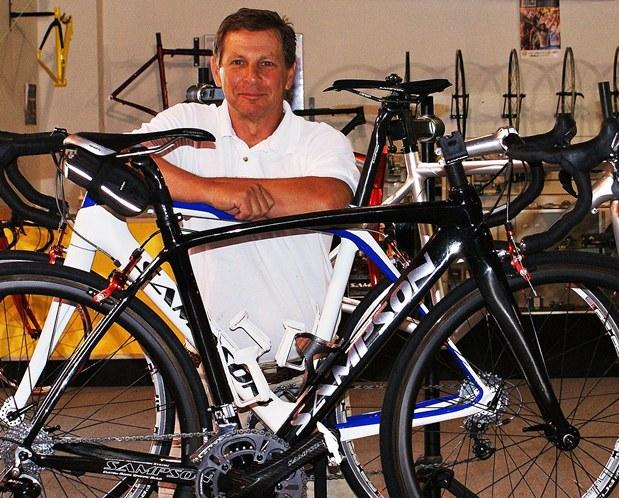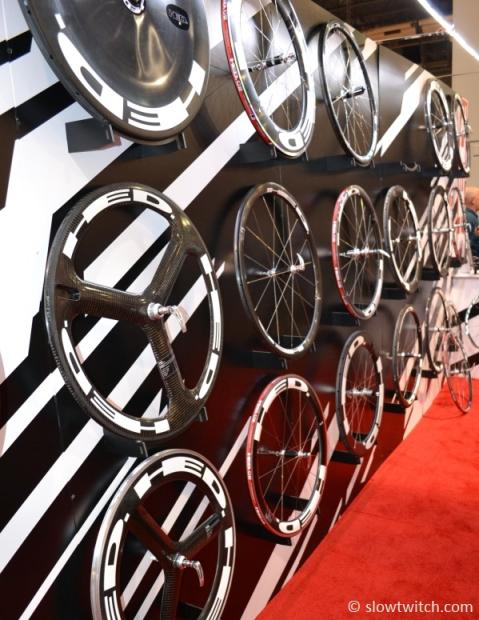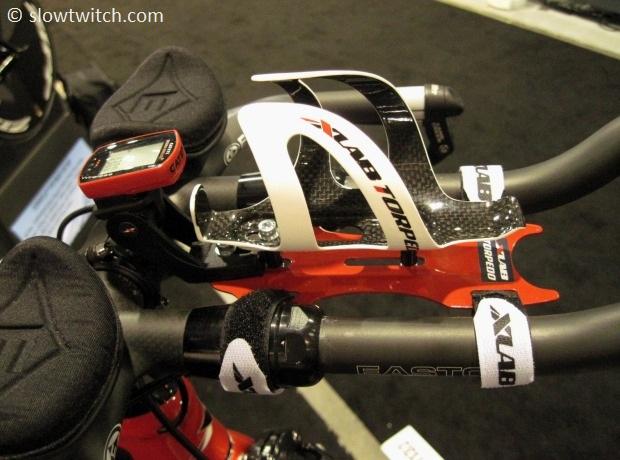Sampson Sports 2013
Sampson Sports is a small manufacturer of bike frames, components, and accessories, based in Denver, CO. You may not have heard of them, but they stand as one of the very few companies making derailleurs and shifters outside of the Big Three (Shimano, Campagnolo, and SRAM). They were founded by none other than Eric Sampson, a former professional ski racer-turned-ski-binding-manufacturer. He got the cycling bug back in the 1980’s, started his own company, and still runs strong today – albeit with a much expanded product line.
What does Sampson sell on? What are their key features and benefits… their “mission statement”, if you will? According to Sampson, he aims to model his company after Honda, selling on extreme value (which he says is not the same thing as a unilaterally cheap price). He clearly has a passion for his business, and is known throughout the industry as a likable and driven guy.
Sampson offers nearly every part for bicycles, except tires and wheels. You can get frames, handlebars, cassettes, brakes, cranks, shifters, bottle cages, and even handlebar tape. The majority of his products are manufactured in Asia by a handful of factories, which he visits several times a year. Paint for the bike frames is done in-house, as is all complete bike assembly.
I took a tour through their Denver office and showroom, to meet the man and take a look at their products. I’ll have a handful of these products in my hands for testing shortly, and look forward to giving them a fair shake (keep your eyes peeled for a review). For now, enjoy this photo preview of their 2013 product line.
Sampson has a large showroom in Denver, Colorado.
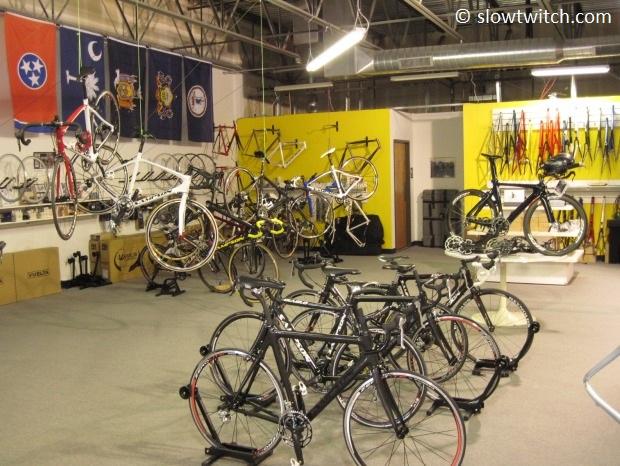
This is a complete bike example of Sampson’s 745 TT model.
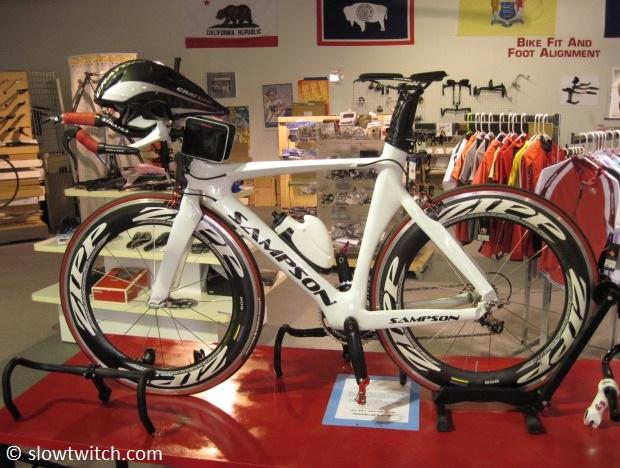
Frame production is done in Asia, but most are painted in Colorado. Check out this custom silver and purple flame scheme:
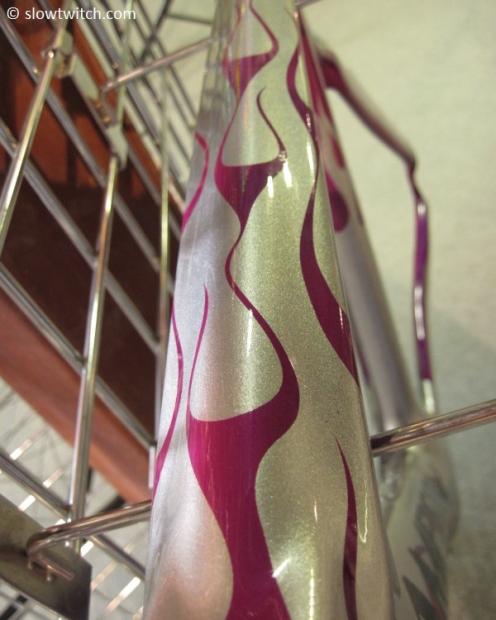
Sampson’s rear derailleurs feature a 2:1 cable pull, and are compatible with either Sampson’s own shifters, or Shimano 10-speed (105, Ultegra, Dura Ace).
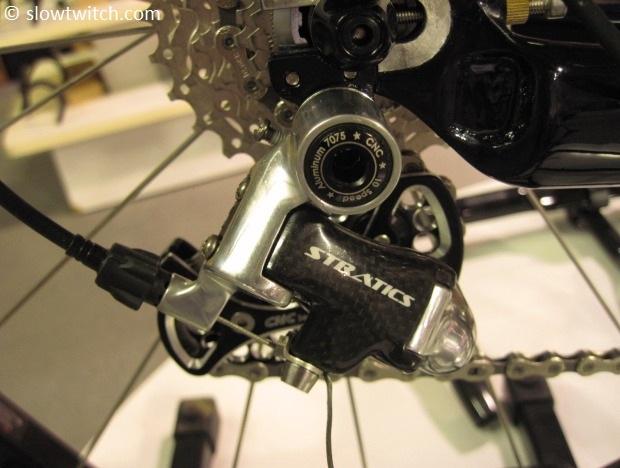
The Stratics SL Race cassette is made from a solid block of aluminum. According to Sampson, it is for racing-only and lasts about 1,500 miles. That’s not many, but he’s up-front about what you’re buying. And – it weighs in at a measly ~90 grams, depending on which size you pick. Compare that to ~135g for the 2012 SRAM Red, or ~150g for Shimano Dura Ace 7900. Who says you can’t buy speed?
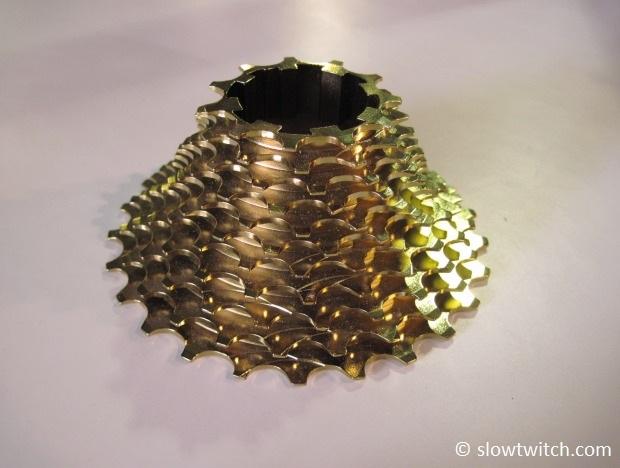
The cassette receives a unique treatment process to prolong life as much as possible, and it results in a beautiful golden hue. The entire inside is machined out:
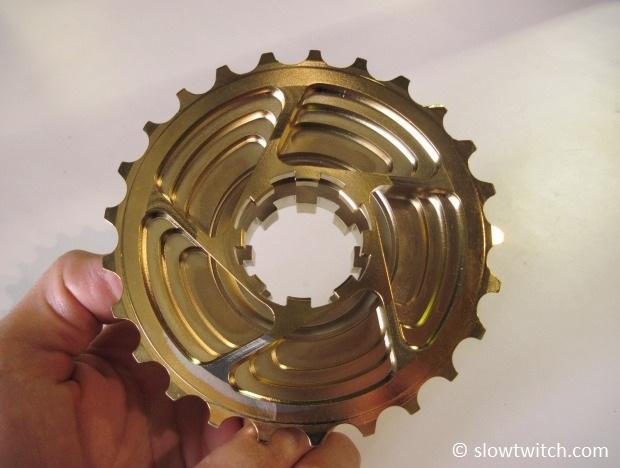
Sampson is also getting in to a lower price point steel cassette.
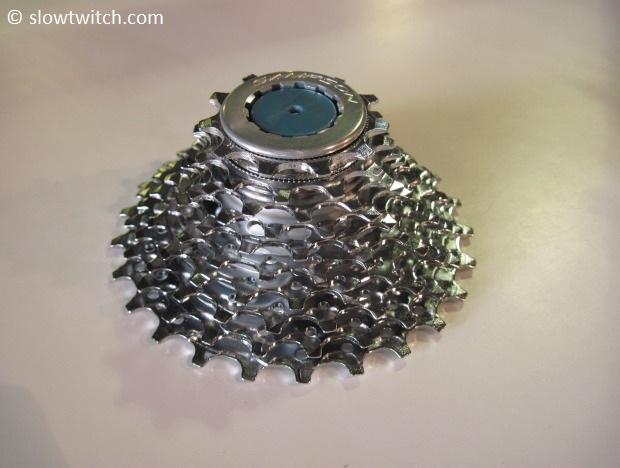
It features unique textured areas in very specific shift points. Sampson says that these aid in fast an accurate shifting.
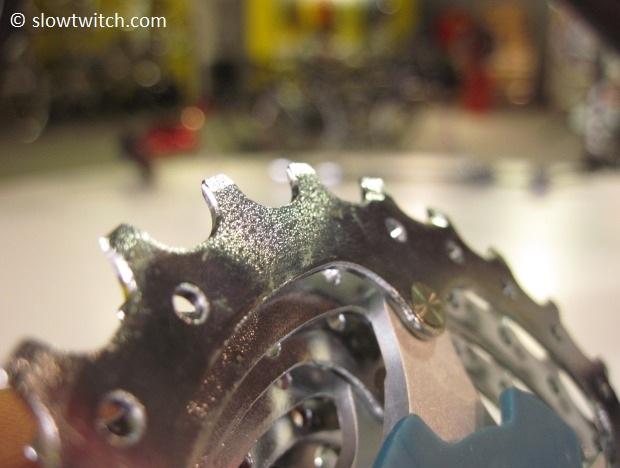
These are the new 2013 Stratics Carbon pedals:
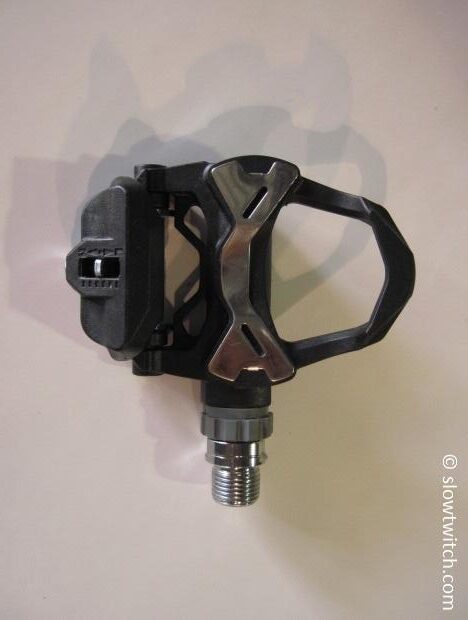
They are cross-compatible with LOOK Keo cleats. The key innovation, according to Sampson, is the fact that the middle of the pedal platform is concave. He mentions that many other similar-style pedals are actually slightly convex, which causes instability and power loss. I can’t personally vouch for this yet, but plan to test a pair of these pedals over the winter.
Note the carved-out platform area:
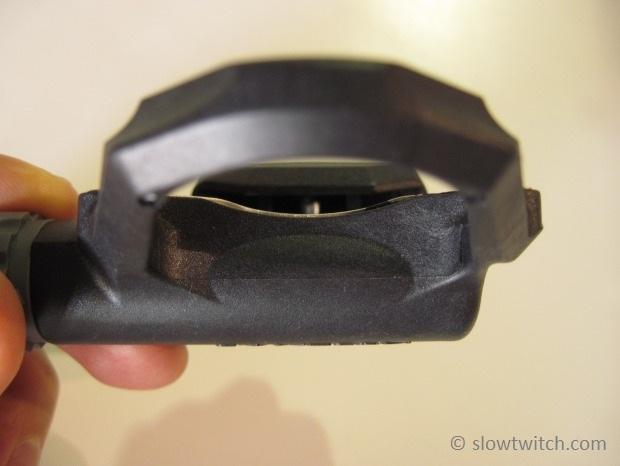
Sampson calls these EZ Grip Cages. They’re made of a polymer composite material and weigh in at 46 grams each. The design is said to be made for easy bottle entry and exit by the rider, but retain bottles well over potholes and rough pavement.
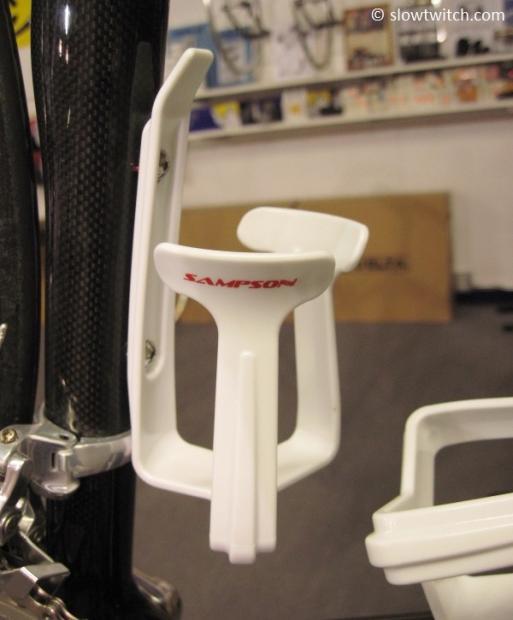
This new brake lever is quite possibly my favorite Sampson product. At first glance, it looks like any old TT-style lever:
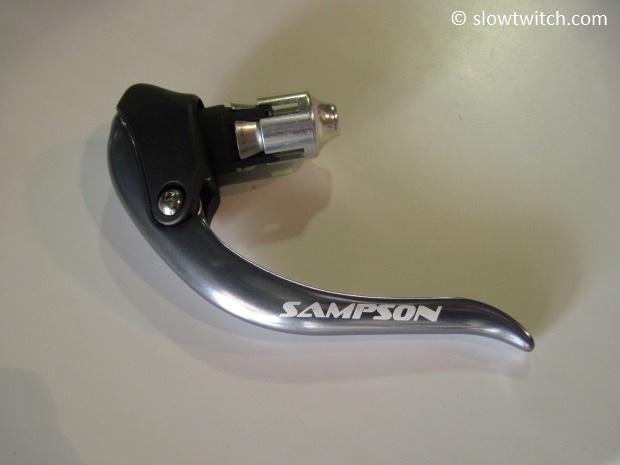
If you squeeze it, however, you notice an important detail: The cable hole is above the compression plug bolt. Most other internally-routed TT levers feature a hollow bolt through which the cable runs. This presents two problems: 1) Limited leverage, because the cable runs relatively close to the lever’s fulcrum, and 2) Inability to tighten the compression bolt without first removing the cable.
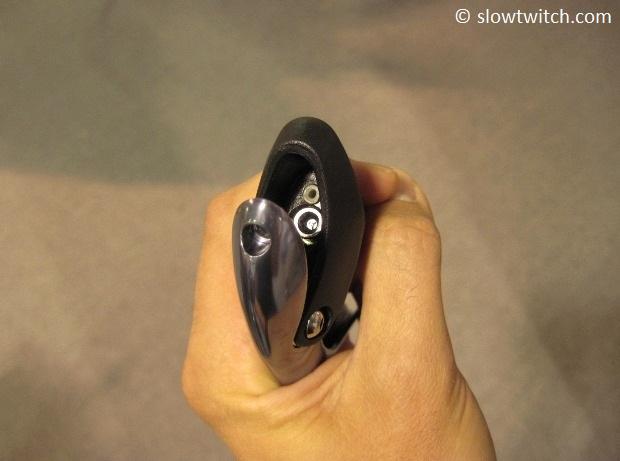
The first problem really shows itself on some frames with proprietary hidden TT brakes, which are not always very strong or confidence inspiring. Giving more horsepower can help solve the problem (his levers also feature robust return springs).
The second problem of cable routing can be a hazard when traveling. On more than one occasion, I’ve seen folks open up that bike box at their race, and find out that their TT levers got pushed off to the side during the flight and baggage handling. If your cable runs through the bolt, you must remove the cable, adjust the lever, and reinstall a new cable. On some of the more complicated bike frames, this procedure could require an hour or more of your time (or an emergency trip to the nearest bike shop).
This lever, however, features a simple cutout in the compression plug through which the cable runs. If your lever happens to get mashed off to the side during flight, it is a 15-second fix. Just loosen the bolt, move the lever, and re-tighten it. Bravo!
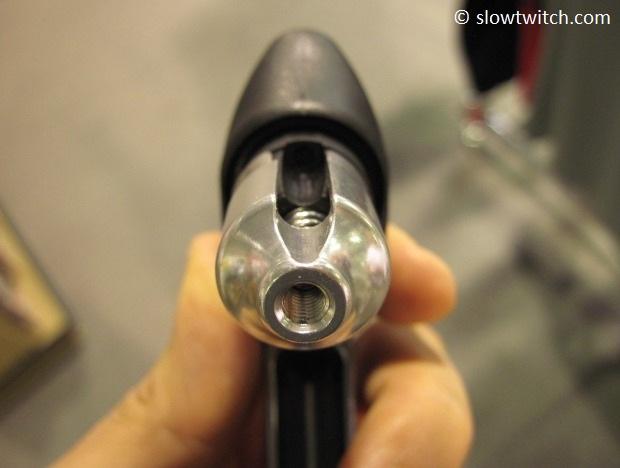
Sampson has a unique take on the “bento box”:
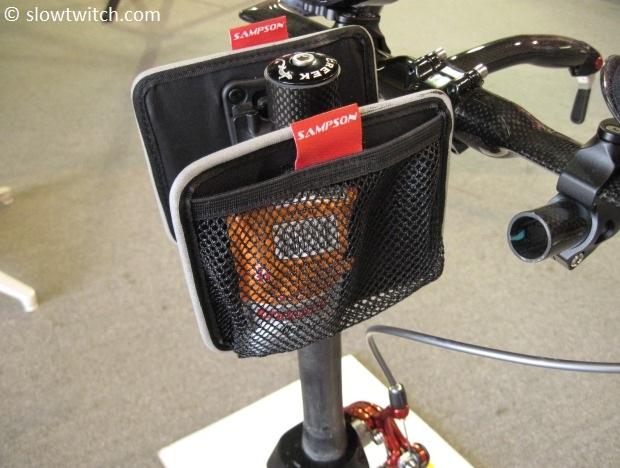
He intends these to be used for long-distance triathlon and endurance mountain bike racing.
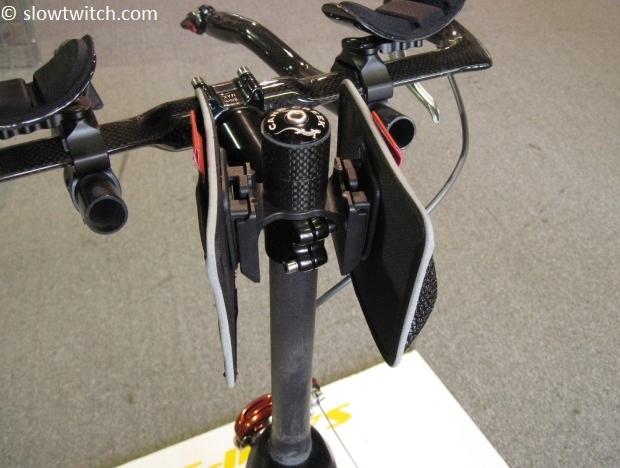
Sampson makes super light brakes…
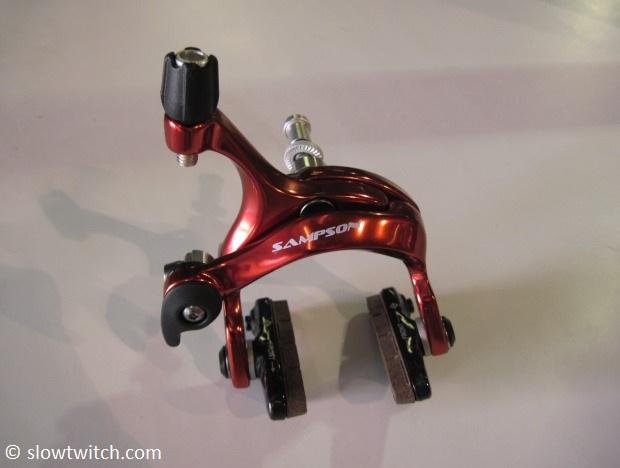
…and several models of nice-looking cranks.
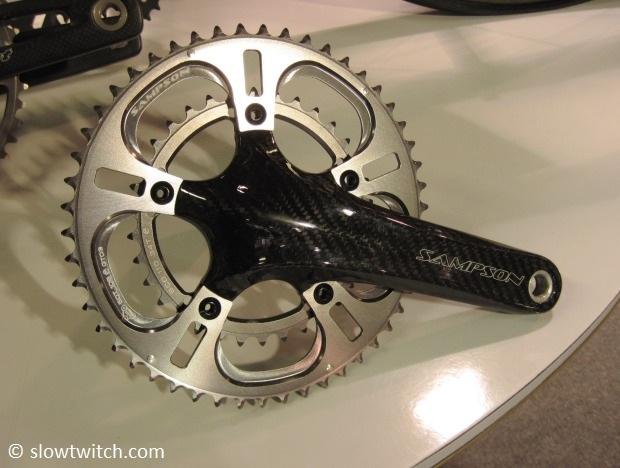
The man behind the company.
